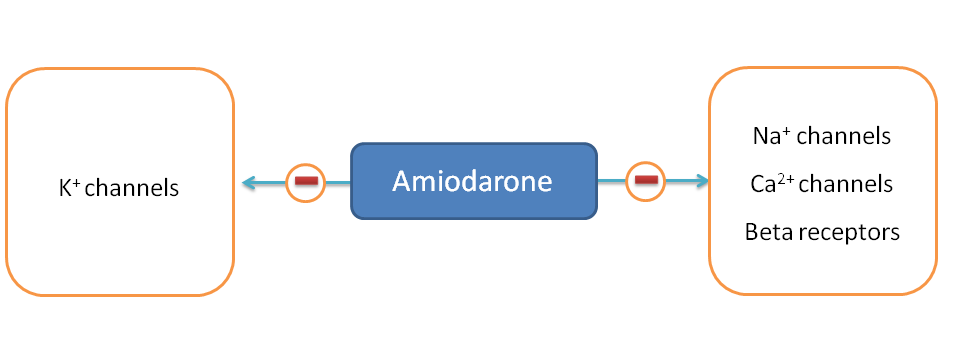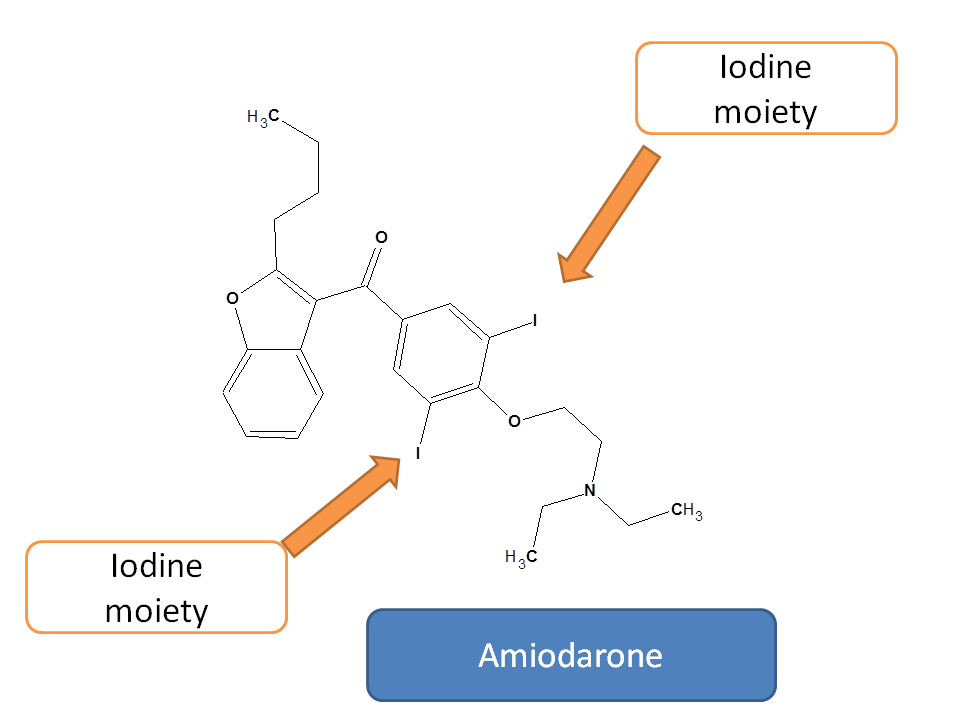Does amiodarone produces thyroid abnormalities?
by egpat Posted on 09-06-2017
Yes. Amiodarone may produce either hypo or hyperthyroidism.
Amiodarone is a class III antiarrhythmic agent that blocks voltage gated potassium channels. Even it belongs to class III, It shows various other actions. It blocks other channels like sodium and calcium as well as blocks beta receptors.

Due to its multiple mechanisms and effectiveness in wide range of arrhythmias, it is the one of the most used antiarrhythmic agent.
But it is not with free of adverse effects. It shows various adverse effects including thyroid abnormalities, corneal deposits, torsade de pointes, lung failure etc. One of the fatal adverse effect torsade de pointes is due to raise in QT interval that shown by class of drugs that block potassium channels. But thyroid abnormalities are due to its class action but due to its structure.
Structurally amiodarone is a thyroxine analogue with iodine moiety.

Because of iodine group in its structure it interferes with thyroid synthesis leading to either hypo or hyperthyroidism.
New related drug dronedarone has no iodine group and does not produce thyroid disorders.